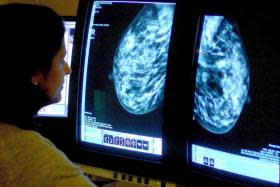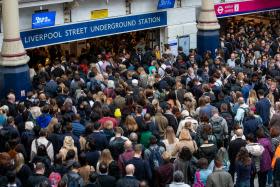Evening Standard comment: London’s scientists show why an open world works; Hard time on high street; Beatlemania’s back
What makes a great city work? Is it the location? The buildings? Or is the magic ingredient the brilliant mix of talent and opportunity that comes when people from many backgrounds meet, work together and share ideas?
Whether it’s London’s world-leading financial powerhouse or the best theatre scene anywhere, our city is succeeding like few others because it is full of people trying out new and exciting ways of doing things.
Yes, there are big challenges. But we should remember too what is working and make sure we look after it.
Take the work of medical scientists at our city’s great universities and institutions. Can any other city equal their success?
Today we report on what could prove a vital breakthrough by a team at King’s College. They have found a possible new treatment for women with triple negative breast cancer — a type which does not respond to the most commonly used drugs.
Around 7,500 women a year in Britain are diagnosed with triple-negative breast cancer and this discovery could be a vital help to them — although it is still at the early stages.
Valuable work like this is happening all over the capital.
Next to St Pancras station the huge and stunning new Francis Crick Institute has brought together researchers to study the fundamental biology that underlies human health.
Read more
Antibody discovery offers breakthrough in breast cancer fight
Nowhere else in Europe is as big or well equipped. In the past month alone its researchers have announced a new way of working on human genetics and a way of reducing the threat from tuberculosis infection in patients being treated for HIV.
Other London institutions are leading breakthroughs too: such as the Institute of Cancer Research, which has discovered more new cancer drugs than anywhere else in the world.
Or another team at King’s, which has just shown that a drug used to treat Alzheimer’s can also stimulate the growth of dental tissue — offering a new way of treating cavities.
But all of this depends on one big, important thing: keeping London open to the world.
The 1,250 scientists who collaborate at the Crick Institute are typical. Only 10 per cent say they are confident about the post-Brexit future. The end of EU free movement and the loss of EU funding will make their work harder.
Brexiteers can dream all they like about the opportunities they hope will come after a hard break with Europe. But the reality is different.
London’s researchers need us to break down boundaries, not build them up.
Hard time on high street
There’s still no news about whether the Central line strike planned for next Saturday will be called off. RMT drivers — a handful of whom have just been revealed to earn more than £100,000 a year — are set to walk out after one was fired for failing a random drug test.
Who’ll feel the pain if they go ahead with this pointless action?
Read more
Tube crisis talks in bid to stop strike in Christmas run-up
Retailers in the West End for one thing, already hit by delays to Crossrail’s opening.
Saturday should be the big pre-Christmas shopping day, but even that can’t make up for a downturn in spending that has seen sales struggle despite discounting. It’s not just that people are buying online — they are holding back altogether.
The profit warning from online fashion retailer Asos is a bad sign.
The last thing London needs is transport chaos to make things on the high street even tougher.
Beatlemania’s back
In one of the greatest Christmas truces of all time, the Rolling Stones guitarist Ronnie Wood joined Beatles legend Sir Paul McCartney at the latter’s concert last night — and according to our five-star review today it was a triumph.
Add in Ringo Starr, who came up from the crowd to join in an encore of Get Back, and they have a combined age of close to quarter of a millennium — but forget the years, it sounds like everyone at the O2 was simply having a Wonderful Christmastime.

 Yahoo News
Yahoo News 

